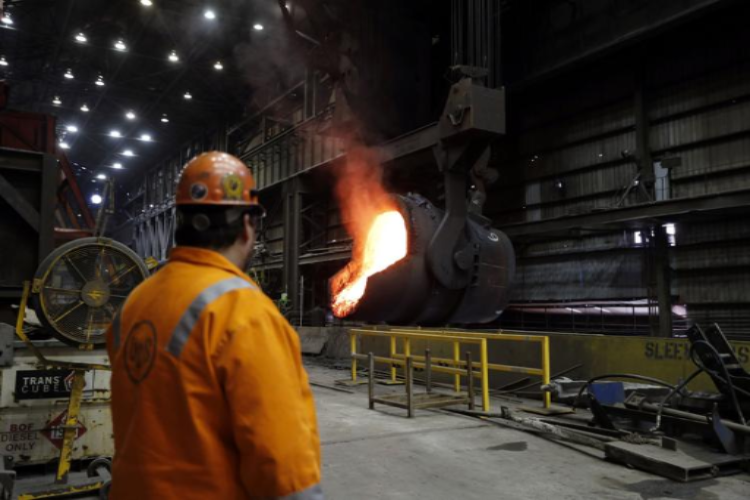How Many Jobs Are Available In Broadcasting In 2023
Knowing how many jobs are available in broadcasting company will help you to understand which job to apply for if you are interested in working in a broadcasting company. So this article contains a list of jobs available in the broadcasting sector.
Selecting a school that teaches journalism, production, and communications can be crucial when pursuing a career in broadcasting because it can help you secure your first job. Determining your path early will significantly impact what you study because there are many professions in the broadcast industry.
One of the most enjoyable and rewarding industries today is broadcasting. Imagine how delightful it would be to host a famous radio show or serve as the news anchor for a major television network. If you take a career path in broadcasting, you can achieve all of this. Both radio and television broadcasting offer a wide variety of positions, from engineers to news anchors.
A career in broadcasting only happens gradually and requires patience and time. You need to develop your speaking and communication skills and your ability to conduct effective research, write for your audience, and feel at ease in front of a camera or behind a microphone.
Table of contents
Why Choose A Career In Broadcasting?
There are numerous opportunities for advancement in a career in the fascinating and creative field of broadcasting. Many dedicated workers keen to leave their mark on the broadcasting industry are drawn to this area. Excellent for those who are good communicators and public speakers. Being a part of the history of media and broadcasting. Exercises their creative muscles every day—influence on the globe and communities.
Check out: How Many Jobs are Available in Transportation in 2023 | Stats
Why Choose A Career In Broadcasting?
There are numerous opportunities for advancement in a career in the fascinating and creative field of broadcasting. Many dedicated workers keen to leave their mark on the broadcasting industry are drawn to this area. Excellent for those who are good communicators and public speakers. Being a part of the history of media and broadcasting. Exercises their creative muscles every day—influence on the globe and communities.
See also: How Many Jobs are Available in Industrial Machinery/Components in 2023 | Stats
Do I Need a Degree in the Broadcasting Field?
The media has undergone an enormous change, and various venues are now accessible that don’t call for formal education or years of experience. Formal education and practical experience are helpful if you want to work for a big network, and having access to multiple high-quality internships can help you develop your talents.
What do People Working in Broadcasting Do?
The broadcasting sector employs people to provide original radio, television, the Internet, and other media content. They do things like inform the public on breaking news or discuss timely subjects like sports and entertainment.
Also check: How Many Jobs are Available in Hotels/Resorts in 2023
Factors to Consider Before Applying for a TV or Radio Broadcasting Career
1. Job Opportunities
Depending on your area and the size of the market, the job market for radio broadcasting may change. While smaller communities might have fewer opportunities, major cities frequently have more. Starting out in entry-level positions as a radio host or production assistant can help you gain experience and advance your career.
2. Knowledge and Experience
Building good presentation, communication, and storytelling abilities is essential for success in radio broadcasting. Knowledge of production methods, audio editing software, and the most recent developments in the market are all advantageous.
3. Diversification
Broadcasters who can adapt and expand their talents may have an advantage as technology continues to transform the industry. Your job options within the audio sector may be improved by, for instance, developing experience in podcasting, voice acting, or content development for internet platforms.
4. Changing Industry
By increasing their online presence through live streaming and podcasting, radio stations have been adjusting to digital reality. With this change, broadcasters can connect with listeners on frequencies other than those used for traditional radio.
5. Internships and Networking
It can be extremely helpful to establish contacts inside the sector through networking events, internships, or volunteer work. You may learn from experts, gain practical experience, and possibly open doors to new work chances by doing this.
Read also: How Many Jobs are Available in Telecommunications Equipment in 2023 | Stats
How Many Jobs Are Available In Broadcasting? Best Paying Jobs In Broadcasting In 2023
How Many jobs are available In Broadcasting? Here is the list of broadcasting jobs available in the broadcasting industry
#1. A News Reporter
News reporters are responsible for finding, developing, and verifying stories that are significant or compelling enough to be covered by the media. A news reporter is supposed to take the lead and develop it into a fully developed narrative that will pique the audience’s interest. An average news reporter makes $45,000 a year.
#2. Broadcast Engineer
A broadcast engineer, also known as a broadcast technician, uses several tools to guarantee the clarity of the sights and sounds on television. Broadcast engineers work from studios or other remote sites to transmit radio or TV programs. $81,000 is the average annual salary.
#3. Video Editor
A video editor’s critical eye is always used before a news article or television program is presented to you in its pure, polished form. A video editor is a person who takes unprocessed production material and creates the ideal finished result. Video editors create a complete video out of various video clips, sound bites, and pieces of footage. $49,000 is the average annual salary.
#4. Graphic Designer
Do you enjoy both design and production and possess computer skills? You should absolutely pursue a career in broadcasting. All of the logos, maps, chyron pictures, lower third identifications, station bugs, and the majority of the visuals used during a broadcast are created by graphic artists.
#5. News Director
The production and broadcast of radio newscasts are under the supervision of a news director. The news director assigns staff members to cover specific news stories and provides them with guidelines on how to get their reports ready for air. Additionally, they give everyone a deadline for doing their work. $61,000 is the average annual salary.
See also: How Many Jobs are Available in Natural Gas Distribution in 2023
#6. Production Manager
A production manager’s primary responsibility is to ensure that every aspect of any televised production runs well. They work with other broadcasting executives to establish objectives and comprehend the needs of each specific project. $82,000 is the average annual salary.
#7. Sales Manager
The broadcasting sector needs to make money from advertising sales as a business. This job is crucial because advertisements provide for nearly all of the organization’s revenue. The hiring and training of an effective sales team fall under the purview of the sales manager. The sales manager should always be knowledgeable about market trends and their target market.
#8. Broadcast
A broadcast producer is basically overseeing the production process for a television network, radio station, or other media outlet. They keep an eye on everything to ensure that everything proceeds as planned. $68,000 is the average annual salary. 25 Best Free Courses For Teens | Free Online Courses for Teenagers in 2023
Also see: How Many Jobs Are Available In Construction Industry in 2023
#9. Music Directors
The music director keeps up the libraries of music for the stations. New records are delivered to them by record companies, and they work with the program director to plan the day’s programming in concert. Many radio stations in smaller markets combine the position of music director with that of program director, on-air talent, and music producer.
#10. Camera operator
To ascertain the needs of each shot, a camera operator works closely with directors. One of the highest-paying positions in broadcasting is this one. They must be able to set up and operate camera equipment, including all its add-ons like stands and cranes. $46,000 is the average annual salary.
#11. Location Scout
A location manager, sometimes known as a location scout, is responsible for locating a shooting location for a production based on the project’s demands. Site scouts are responsible for negotiating prices, obtaining the necessary licenses, and identifying the ideal site for the shoot.
#12. TV Production Coordinator
A television production coordinator is a person who works onsite at a film or television set to plan and follow production schedules. They handle tasks that include preparing production food, informing the cast of schedule changes or other vital information, responding to emails, and managing production helpers. It resembles the progression from becoming a production assistant.
#13. Production Assistant
The most typical way to break into the broadcasting business is to work as a production assistant. Production assistants, or PAs as they are commonly known, are in charge of several general duties required on a production set. $31,000 is the average annual salary.
#14. Radio Technician
A radio technician is skilled in installing, testing, fixing, and adjusting radio equipment. They also try to identify flaws and their causes. An experienced radio technician can decipher service manuals, calibrate electronic instruments, comprehend design specifications, and assemble communication equipment.
Check also: How Many Jobs are Available in Major Chemicals in 2023 | Stats
What other types of jobs are available in this career field?
Here are some more positions in the industry besides acting in front of the camera:
- Sports journalism.
- Foreign Affairs
- Investigative reporting.
- Editing.
- Radio broadcasting
- Promotions Announcers
- Scriptwriting.
- Copywriting.
- Photojournalism
- Public relations.
- Social media
- Makeup Directing.
- Production.
Pros and Cons of Broadcasting As A Career Path
1. You interact with prominent individuals.
You never know who you’ll encounter in the broadcast profession, which is a bonus. It’s the ideal thing to brag about to your loved ones. Additionally, you can amass souvenirs like pictures and autographs that will make you smile when you look back on them.
2. A shifting environment
Traditional media is being abandoned in favor of social media, online, and streaming services, which is one of the drawbacks. Because of this, media practitioners must become more adaptable and knowledgeable about social media.
3. Self-Sacrifices
Low income and long hours are typical of most entry-level and mid-level professions in the broadcasting sector, which is one of the drawbacks. The fierce competition will require you to work your way to the top. Your relationships will eventually suffer from this way of living.
Conclusion
In conclusion, how many jobs are available in broadcasting? your enthusiasm for the medium, the prospects in your area, and your readiness to change will determine whether broadcasting is a good career choice. Making an informed choice will be made easier if you do your homework, talk to experts already employed in radio, and consider your abilities and interests.
FAQS
Why Choose A Career In Broadcasting?
There are numerous opportunities for advancement in a career in the fascinating and creative field of broadcasting. Many dedicated workers keen to leave their mark on the broadcasting industry are drawn to this area. Excellent for those who are good communicators and public speakers. Being a part of the history of media and broadcasting. Exercises their creative muscles every day—influence on the globe and communities.
How can I become a broadcaster?
If you wish to work as a professional sports broadcaster, consider taking the following actions:
Acquire a bachelor’s degree.
Gain knowledge.
Finish your internship.
Analyze your work.
Look at other broadcasters.
Study the guidelines for different games.
Put together a demo cassette.
Apply at the local radio and news outlets.
Why Choose A Career In Broadcasting?
There are numerous opportunities for advancement in a career in the fascinating and creative field of broadcasting. Many dedicated workers keen to leave their mark on the broadcasting industry are drawn to this area. Excellent for those who are good communicators and public speakers. Being a part of the history of media and broadcasting. Exercises their creative muscles every day—influence on the globe and communities.
How do broadcast media companies make money?
The primary revenue sources for broadcasters are fees from other parties for retransmitting content and on-air advertising.






